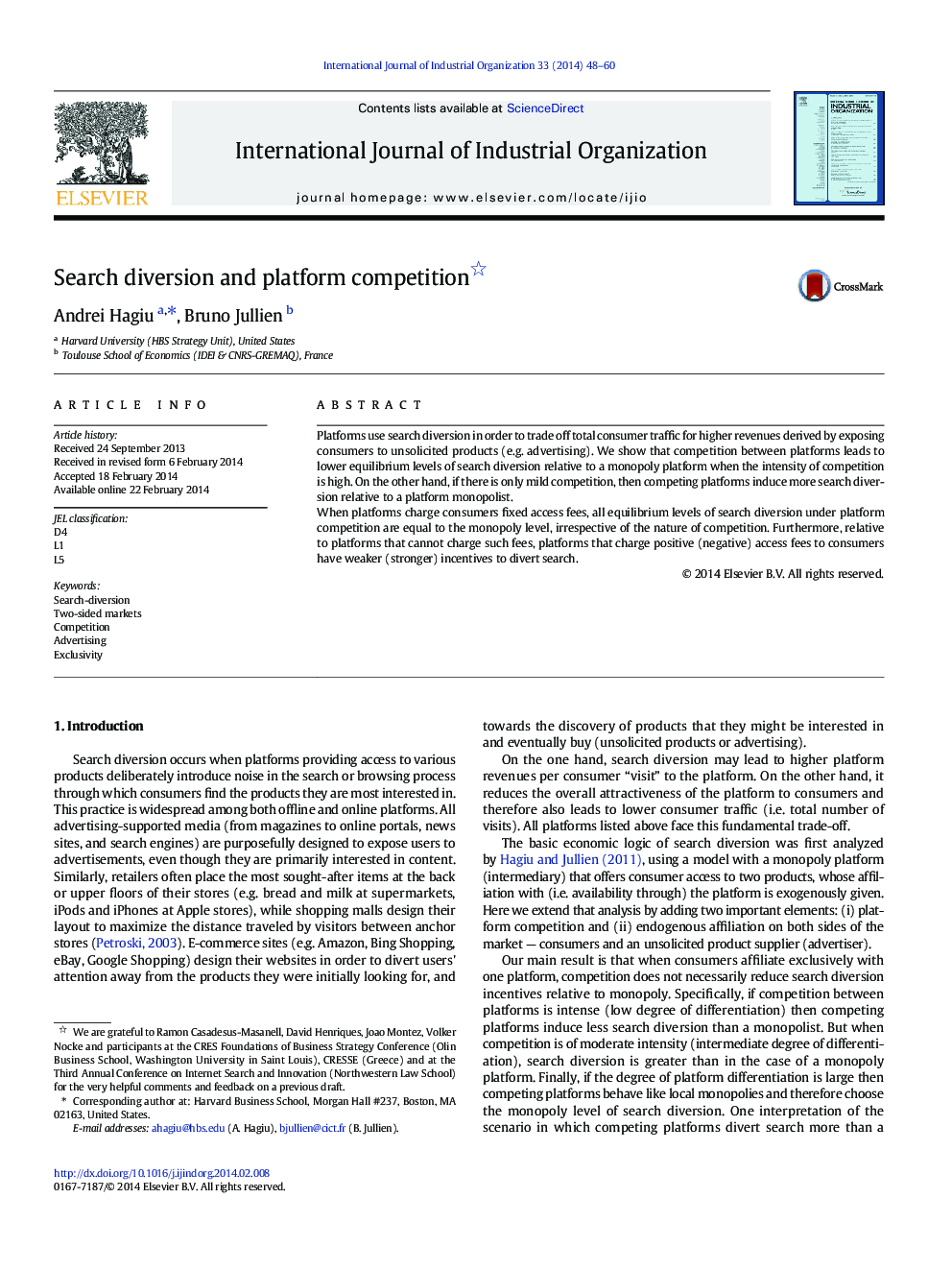| Article ID | Journal | Published Year | Pages | File Type |
|---|---|---|---|---|
| 5078001 | International Journal of Industrial Organization | 2014 | 13 Pages |
â¢We compare search diversion incentives for competing platforms vs. monopoly.â¢Competition for consumers can lead to more search diversion than monopoly.â¢Competition leads to same level of diversion if consumers are charged access fees.
Platforms use search diversion in order to trade off total consumer traffic for higher revenues derived by exposing consumers to unsolicited products (e.g. advertising). We show that competition between platforms leads to lower equilibrium levels of search diversion relative to a monopoly platform when the intensity of competition is high. On the other hand, if there is only mild competition, then competing platforms induce more search diversion relative to a platform monopolist.When platforms charge consumers fixed access fees, all equilibrium levels of search diversion under platform competition are equal to the monopoly level, irrespective of the nature of competition. Furthermore, relative to platforms that cannot charge such fees, platforms that charge positive (negative) access fees to consumers have weaker (stronger) incentives to divert search.
